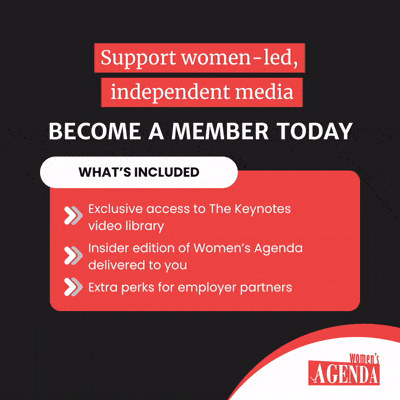In 2014, it’s hard to believe that offering REAL flexible and part-time working opportunities is still considered ‘game-changing’ or seriously ‘disruptive’.
But given many large organisations are more rhetoric than action when it comes to offering satisfying and career-advancing flexible opportunities to ambitious men and women, it’s good to know some employers are seeking to completely overhaul the structural and cultural barriers around when and where one should work.
Yesterday, around 70 organisations, including Women’s Agenda, attended an event hosted by UN Women and the Commonwealth Bank to discuss the UN’s Women’s Empowerment Principles.
The Principles offer businesses guidance on empowering women through measures such as ensuring equal opportunity and nondiscrimination; promoting health and safety; offering education and training; addressing supply chain and marketing practices; and pushing targets and transparency.
Few local employers have signed up to the principles. Of the more than 800 organisations involved around the world, just 19 are Australian.
However, given the intention and number of those present in the room, this number looks set to increase in the coming months.
During the Summit we heard from some of the country’s largest organisations on the initiatives they’re taking to help promote flexible careers. The words used to describe these were ‘game-changing’ and ‘disruptive’.
And such words were appropriate, to an extent. Earlier this year, Telstra rolled out its ‘All Roles Flex’ initiative, meaning every position – from those held by new hires to existing employees – is now considered flexible. It’s up to employees to decide how they want to work and what they’ll need to make it happen. The ASX has recently followed the Telstra lead.
Meanwhile, Lend Lease described how it’s pushing a cultural shift away from rewarding hours over outcomes, with the mantra: “It’s the difference it makes, not the hours it takes.”
This concept aims to remove the idea that productivity stems from face time in the office, or putting in long hours. It also supports the notion of merit – meaning the outcome of what you can deliver is rewarded more than the time it takes you to deliver it.
Yesterday, we published our Part-Time Power List, celebrating 31 women and men in key influential position who also happen to be working part-time.
We received an extremely positive response to the list, especially from readers who were thrilled to see leaders role modeling ‘alternative’ ways of working while still progressing their careers. Indeed, the response had us feeling we’d produced something ‘game-changing’ and it’s certainly a feature we’d like to pursue again.
Doing anything ‘game changing’ implies that you’re taking a risk. And when it comes to really promoting part-time and flexible work opportunities many organisations are still acting with caution.
The risk is that the floodgates will open. Everybody will want to work flexibly – and then what will happen? How will project progress? How will employees stay productive and motivated? Who will be around to switch off the lights? What will happen to the safe and comfortable (for some) structure of the nine to five, Monday to Friday working week?
As Telstra Head of Diversity & Inclusion Troy Roderick told the forum on launching ‘All Roles Flex’: “The floodgates did not open. The sky did not fall it. What it did open up was all the different types of flexibility people need. There’s a new story we hear about it every day.”
The organisation kept moving. People kept showing up to work. Projects continued.
And what if the floodgates did open – would it be such a bad thing to change the game and give employees the flexibility they actually want?
It’s incredible to think that in an economy that’s now fundamentally built on great ideas, the idea of working in a way that differs to how we were working during the industrial era is still considered risky.
What’s really disruptive – to productivity, the environment, kids and people’s lives – is the idea that we should all head off to a place of work around the same time, return home at the same time, and do so five days a weeks whether we need to actually be in the office or not.

